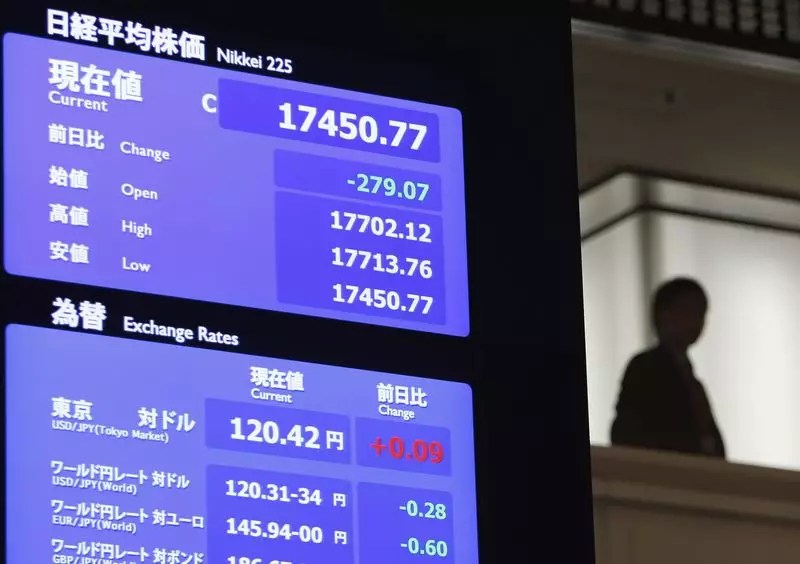The Japanese stock market experienced a decline in performance, particularly in sectors such as Textile, Power, and Shipbuilding. The Nikkei 225 index saw a decrease of 1.63% at the close of trading in Tokyo. This drop in stock value had a significant impact on the overall market sentiment.
Eisai Co., Ltd. (TYO:4523) was among the best-performing stocks on the Nikkei 225, with a 1.43% increase in its share price. Conversely, Tokyo Gas Co., Ltd. (TYO:9531) faced a considerable decline of 5.60%, dragging down the overall performance of the market. The disparity between top performers and losers highlights the volatile nature of the stock market.
The market sentiment was predominantly bearish, with falling stocks outnumbering advancing ones by a significant margin. This imbalance in trade activity indicates a lack of investor confidence in the market. The Nikkei Volatility, which measures the implied volatility of Nikkei 225 options, witnessed a decrease of 2.05% to 28.13, reflecting the uncertainty and risk aversion among investors.
The fluctuation in commodity prices also impacted the stock market performance. Crude oil prices saw a slight increase, with both October and November delivery prices rising. Gold futures also experienced a rise in value, indicating a shift towards safe-haven assets. The currency market saw a decline in USD/JPY and EUR/JPY pairs, further adding to the overall economic uncertainty.
Overall, the market losses in Japan stocks reflect a broader trend of instability and volatility in the global economy. The impact of various factors such as commodity prices, currency fluctuations, and market sentiment has contributed to the decline in stock values. It is crucial for investors to closely monitor these trends and adapt their investment strategies accordingly to navigate the uncertain market conditions.


Leave a Reply